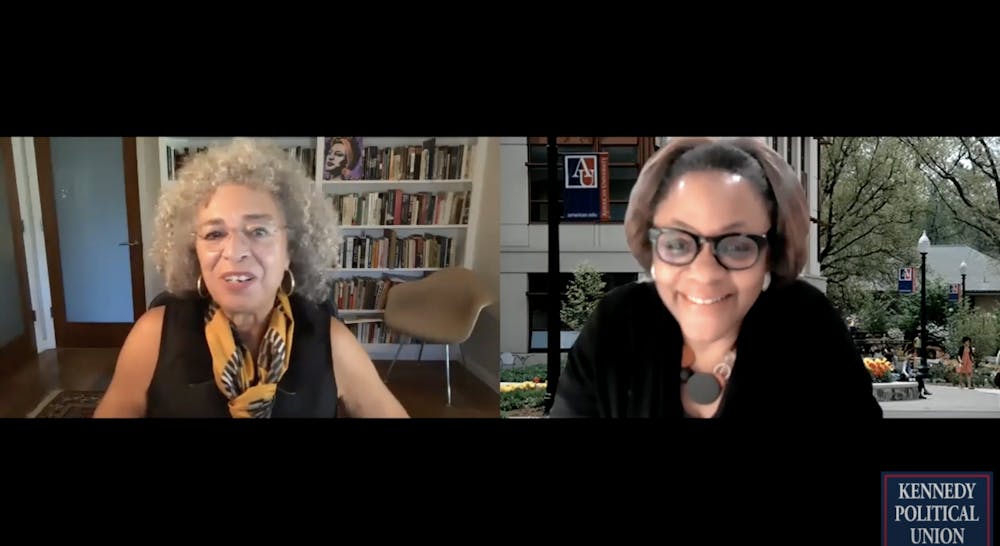Renowned political activist and justice advocate Angela Davis spoke about police reform, activism and structural racism on Thursday at the first event in a new Black Lives Matter speaker series.
Groups including the Kennedy Political Union, Student Union Board, Black Caucus Committee, Women’s Initiative and Students for a Just Society co-hosted the event, and School of Education Dean Cheryl Holcomb-McCoy moderated it.
Davis said justice efforts must go beyond performative measures, especially in areas such as higher education.
“First of all, don’t assume that simply by establishing a diversity and inclusion office that that’s the answer,” Davis said. “That’s good. Diversity is good, inclusion is good, but what about justice?”
Beyond calling into question the role that racism plays in university life, Davis also expanded on how activism has evolved over the last few decades into what it looks like today. Community, Davis said, is critical in activism, especially when movements and individuals become burned out by the effort.
“There have been many times when I have been absolutely exhausted, and asked myself, ‘Why is nothing changing after all the work we have done?’” Davis said. “That happens, and it’s not a problem, as long as one considers oneself as part of a community.”
Davis also spoke about the importance of using abolitionist ideas in modern movements, referencing the Attica prison rebellion in 1971, when inmates and hostages were killed after prisoners staged an uprising in an attempt to improve living conditions. Davis emphasized that the sentiment of prison reform and inmate rights didn’t stem from education, but rather from earlier abolitionist movements.
In academia today, prison studies and reform are prominent, but those ideals originated from the prisoners themselves. She urged her listeners to remember that when discussing prison reform, instead of discussing policy ideas without the input of those directly impacted by them.
Davis also discussed the inherently racist structures of society today, both in the United States and in other countries. However, she said the resistance that has collectivized on an international level against these structures, such as during a protest that occurred in Palestine over the killing of George Floyd, in support of the BLM movement.
Despite BLM being a largely American-based movement, supporters have made themselves known around the world, Davis said.
“We can’t understand racism, and we certainly can’t develop strategies to eliminate it, unless we look at it within a global context,” Davis said.





